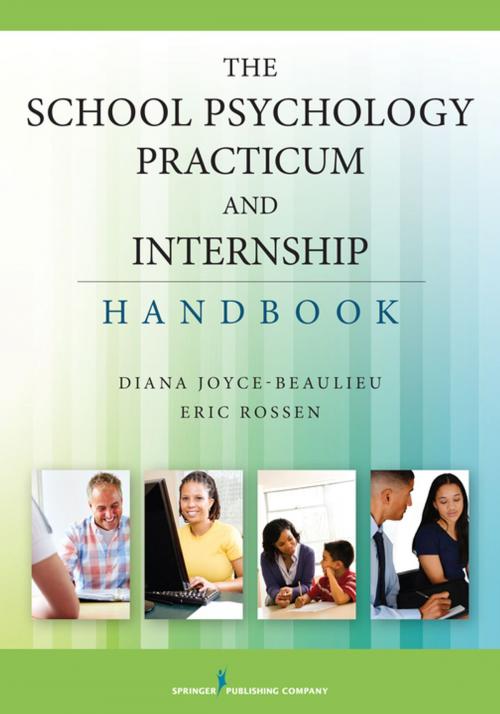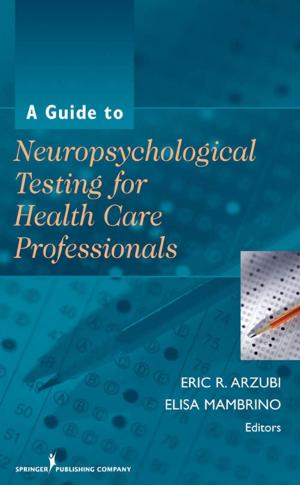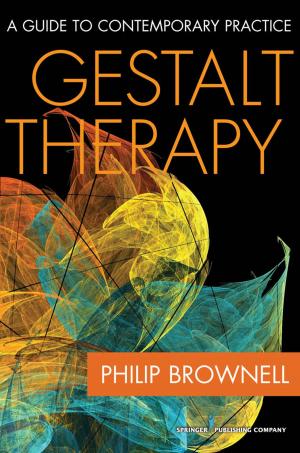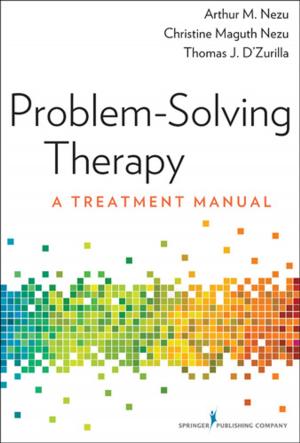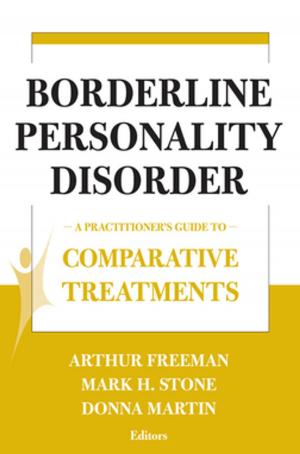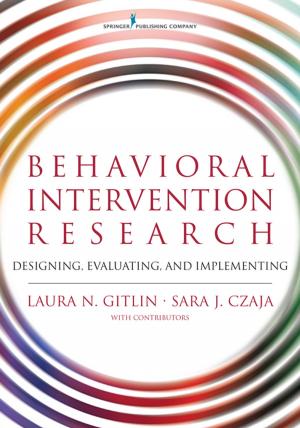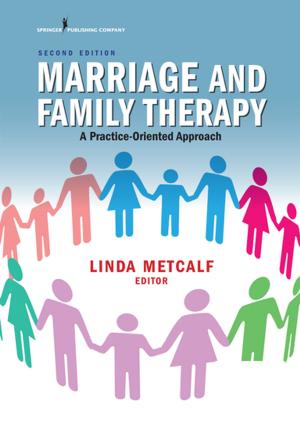The School Psychology Practicum and Internship Handbook
Nonfiction, Health & Well Being, Psychology, Education & Training, Reference & Language, Education & Teaching, Educational Theory, Educational Psychology| Author: | Eric Rossen, PhD, Diana Joyce-Beaulieu, PhD, NCSP | ISBN: | 9780826119322 |
| Publisher: | Springer Publishing Company | Publication: | August 18, 2015 |
| Imprint: | Springer Publishing Company | Language: | English |
| Author: | Eric Rossen, PhD, Diana Joyce-Beaulieu, PhD, NCSP |
| ISBN: | 9780826119322 |
| Publisher: | Springer Publishing Company |
| Publication: | August 18, 2015 |
| Imprint: | Springer Publishing Company |
| Language: | English |
ìThe School Psychology Practicum and Internship Handbook is an outstanding resource written by known leaders in the field to assist graduate students in effectively navigating common ethical issues, promoting strong supervisory relationships, and becoming skilled self-advocates. As a former school psychologist and now doctoral intern, [I find] this book is a gold mine of information that can be immediately applied to strengthen training experiences and develop the highest standards for future practice.îóSheila Desai, NCSP, Doctoral Candidate in School Psychology, University of Massachusetts, Boston
ìSupervising practicum and internship is challenging but Joyce-Beaulieu and Rossen make it infinitely easier with this handbook. The practical information and extensive resources provide university supervisors what they need to implement best-practice supervision. This user-friendly book is a "must have" for all school psychology supervisors and is sure to become one of the best supervision resources in our field.îóLisa Kelly-Vance, PhD, Professor and Director, School Psychology, University of Nebraska at Omaha
The first comprehensive guide for school psychology practica and internships
Tailored to the unique educational requirements of school psychology, this is the first complete guide to practicum and internship for school psychology students and faculty. Replete with practical information and advice, the book introduces students to a variety of professional issues they may be required to navigate during their supervised field-based experiences. The book covers all aspects of the entry-level practicum ranging from orientation to the professionalís role, to portfolio and competency-based evaluations and navigating relationships with supervisors. It addresses advanced clinical applications including systems-level school initiatives, practice in mental health settings, cross-comparison of educational and medical classification models, and more. Coverage of the internship year discusses how to select an internship site, writing a winning vita, the application process, applying for the first career position, as well as certification and licensure. Content reflects National Association of School Psychologists (NASP) and American Psychological Association (APA) standards, guidelines, and best practices with an emphasis on supporting high-quality field-based training experiences.
Additionally, the text offers tools for organizing assessments, consultations, and interventions. Practical recommendations address professional conduct, child abuse reporting, and field experience documentation. Learning is enhanced with the use of diagrams, charts, and sample documents. Chapters include learning objectives, case examples and vignettes for discussion and problem solving, and chapter summaries. Additional online and reproducible resources offer instructors templates for psychological reports, performance evaluations, record-keeping forms and logs, practicum syllabi, and internship contracts that are consistent with NASP and APA principles.
Key Features:
- Provides a strong foundation for initial field-based experiences from beginning practicum through the internship and job search
- Embraces NASP and APA standards, DSM-5, response-to-intervention (RtI) and multitiered systems of support (MTSS) models for school psychology practice
- Enhanced with special features such as learning objectives, case vignettes, sample forms, and end-of-chapter reviews
- Written by experienced practicum and internship supervisors and recognized authorities on the preparation and development of school psychologists
ìThe School Psychology Practicum and Internship Handbook is an outstanding resource written by known leaders in the field to assist graduate students in effectively navigating common ethical issues, promoting strong supervisory relationships, and becoming skilled self-advocates. As a former school psychologist and now doctoral intern, [I find] this book is a gold mine of information that can be immediately applied to strengthen training experiences and develop the highest standards for future practice.îóSheila Desai, NCSP, Doctoral Candidate in School Psychology, University of Massachusetts, Boston
ìSupervising practicum and internship is challenging but Joyce-Beaulieu and Rossen make it infinitely easier with this handbook. The practical information and extensive resources provide university supervisors what they need to implement best-practice supervision. This user-friendly book is a "must have" for all school psychology supervisors and is sure to become one of the best supervision resources in our field.îóLisa Kelly-Vance, PhD, Professor and Director, School Psychology, University of Nebraska at Omaha
The first comprehensive guide for school psychology practica and internships
Tailored to the unique educational requirements of school psychology, this is the first complete guide to practicum and internship for school psychology students and faculty. Replete with practical information and advice, the book introduces students to a variety of professional issues they may be required to navigate during their supervised field-based experiences. The book covers all aspects of the entry-level practicum ranging from orientation to the professionalís role, to portfolio and competency-based evaluations and navigating relationships with supervisors. It addresses advanced clinical applications including systems-level school initiatives, practice in mental health settings, cross-comparison of educational and medical classification models, and more. Coverage of the internship year discusses how to select an internship site, writing a winning vita, the application process, applying for the first career position, as well as certification and licensure. Content reflects National Association of School Psychologists (NASP) and American Psychological Association (APA) standards, guidelines, and best practices with an emphasis on supporting high-quality field-based training experiences.
Additionally, the text offers tools for organizing assessments, consultations, and interventions. Practical recommendations address professional conduct, child abuse reporting, and field experience documentation. Learning is enhanced with the use of diagrams, charts, and sample documents. Chapters include learning objectives, case examples and vignettes for discussion and problem solving, and chapter summaries. Additional online and reproducible resources offer instructors templates for psychological reports, performance evaluations, record-keeping forms and logs, practicum syllabi, and internship contracts that are consistent with NASP and APA principles.
Key Features:
- Provides a strong foundation for initial field-based experiences from beginning practicum through the internship and job search
- Embraces NASP and APA standards, DSM-5, response-to-intervention (RtI) and multitiered systems of support (MTSS) models for school psychology practice
- Enhanced with special features such as learning objectives, case vignettes, sample forms, and end-of-chapter reviews
- Written by experienced practicum and internship supervisors and recognized authorities on the preparation and development of school psychologists
